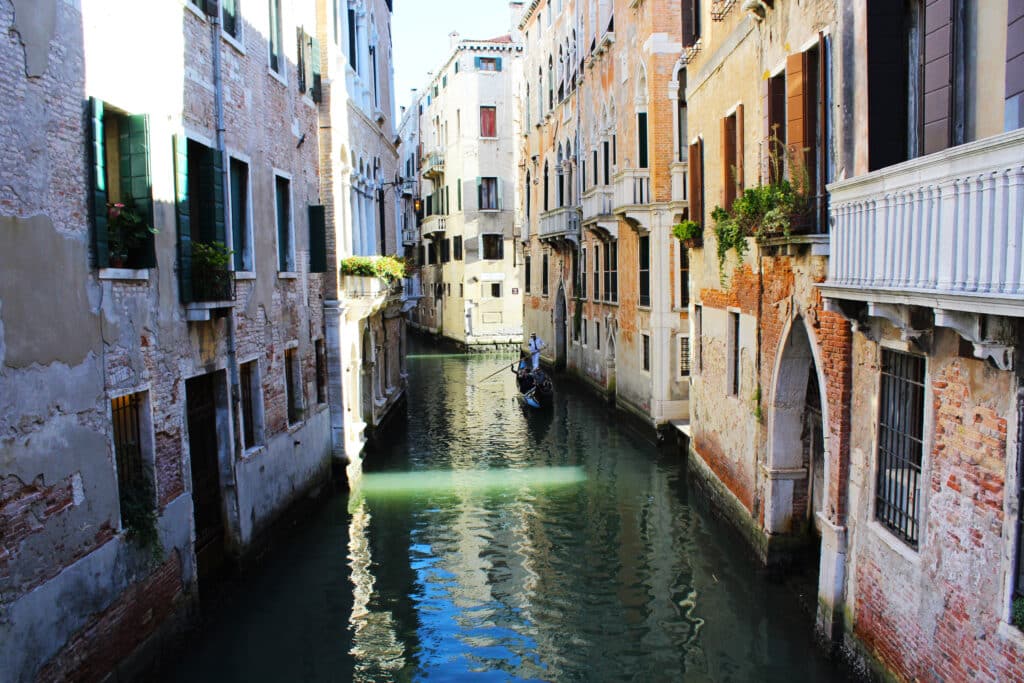Italy braces for another drought after last summer’s extreme heatwave dried up the country’s longest river, threatening local agriculture and hydroelectric supplies.
—
Italy is facing a new drought alert as weeks of exceptionally warm weather have dried up Venice’s historic canals, stranding water taxis, gondolas, and hampering the city’s emergency boat services.
While weather experts attribute Venice’s extraordinarily low water levels primarily to a high-pressure system, a full moon, and sea currents, they agree that last year’s historic heatwave – which the European Drought Observatory described as the worst in at least 500 years – combined with the lack of precipitation this winter, have exacerbated the situation.
Last summer, River Po dried up due to record-breaking high temperatures and a long-lasting absence of precipitation. As a result, Northern Italy – a climate-vulnerable area – faced months of monumental water shortages that directly impacted crops and hydropower energy generation, with reservoirs storing river water destined to be used in hydroelectric plants dropping below the minimum historical values.
You might also like: What Europe’s Snow Shortage Tells Us About Global Warming
After the historic heatwave, the current, exceptionally warm and dry winter has raised concerns among scientists and environmental groups about a new, nationwide emergency.
Many of the country’s rivers and lakes – especially in northern regions – are already suffering from a severe water shortage, Legambiente warned on Monday. According to the group, water levels on Lake Garda, Italy’s largest lake, have reached record lows, while River Po, the country’s longest and most important river, currently has 61% less water than normal this time of year.
In a statement, Legambiente also urged the government to develop “a national water strategy that has a circular approach with short-, medium- and long-term interventions that favour adaptation to climate change and the reduction of water withdrawals and waste immediately.”
“2023 has just begun, but it is showing worrying signs in terms of extreme weather events, drought levels,” Legambiente’s executive director Giorgio Zampetti said on Monday. “We must immediately reduce withdrawals in the various sectors and for the various uses before reaching the point of no return.”
A new study published last October suggested that human-induced climate change made last year’s drought across the Northern Hemisphere at least 20 times more likely. And as the effects of climate change rapidly intensify, record-breaking heatwaves are becoming a regular occurrence not just in Europe but globally.
According to a recent UN report, an estimated 55 million people globally are directly affected by droughts every year, making it the most serious hazard to livestock and crops in nearly every part of the world. Within the next few decades – the report continues – 129 countries will experience an increase in drought exposure mainly due to climate change alone and by 2050, between 4.8 and 5.7 billion people will live in areas that are water-scarce for at least one month each year, up from 3.6 billion today.
You might also like: What’s Behind the Record-Breaking Extreme Weather Events of Summer 2022?


















